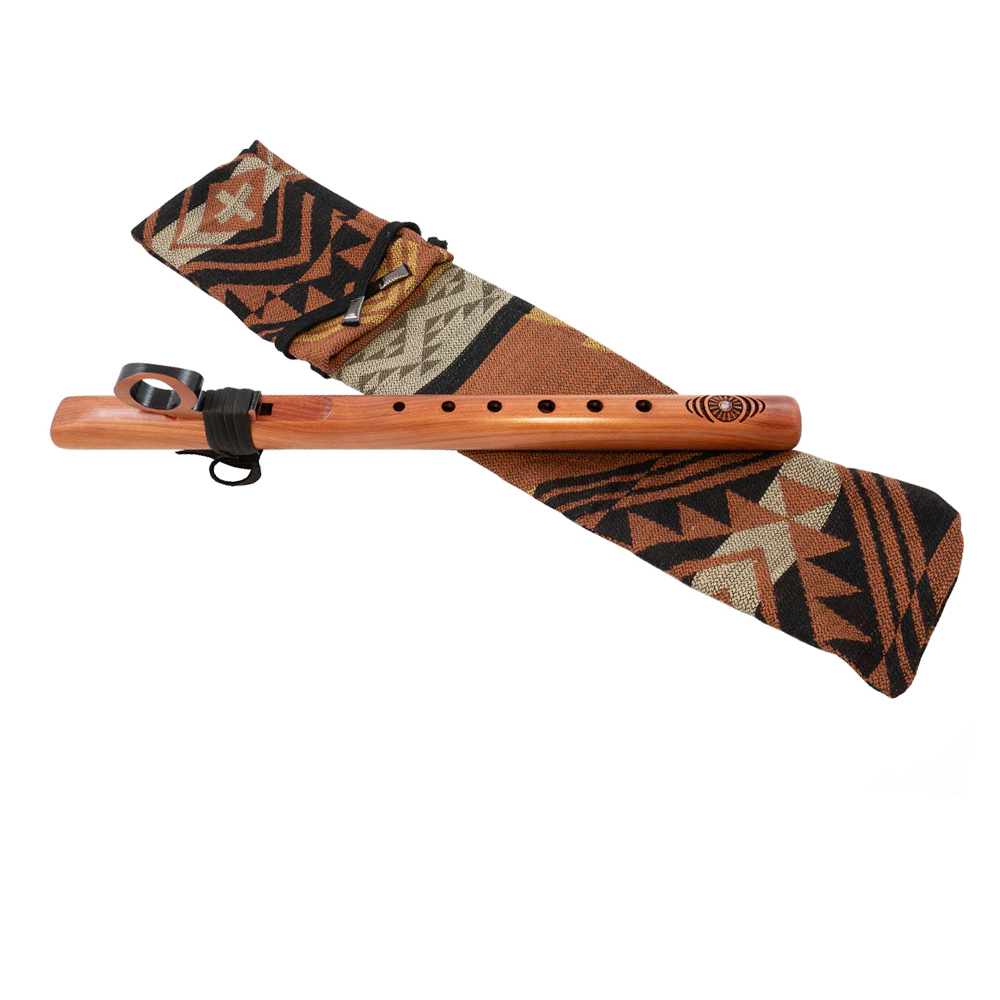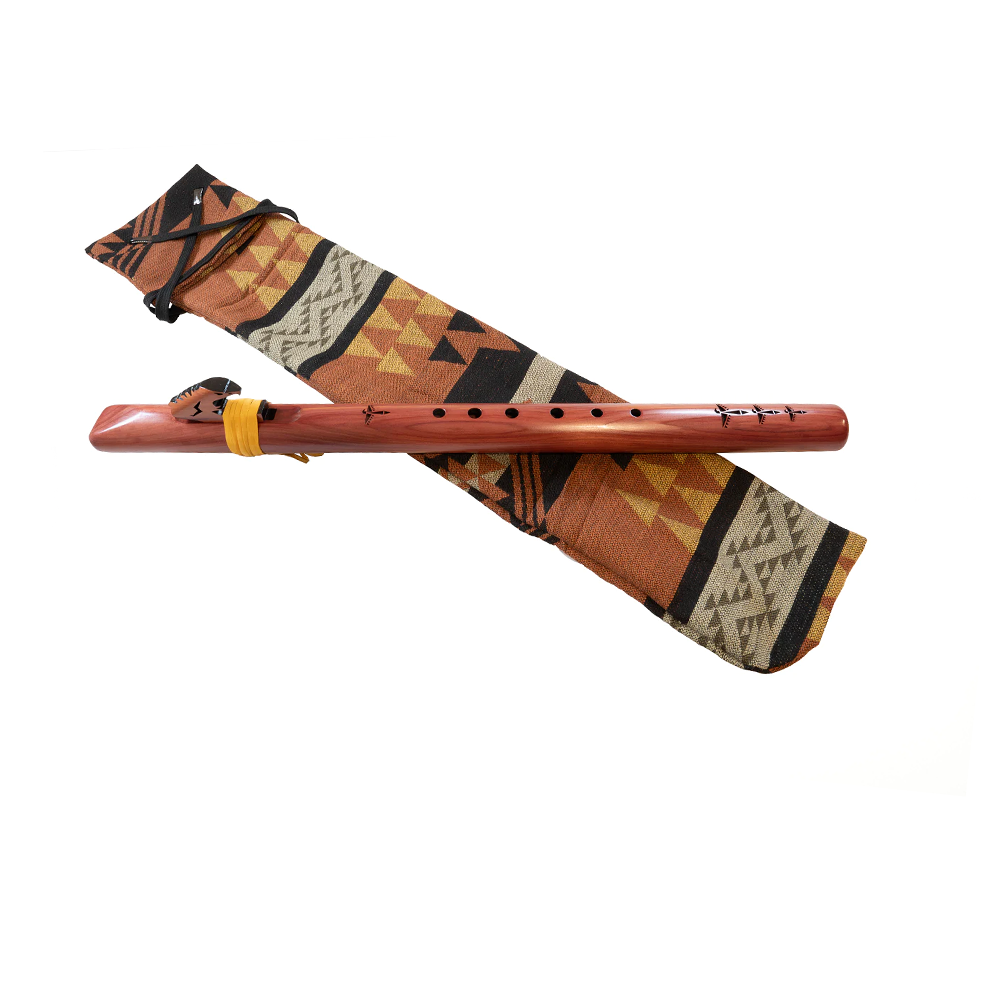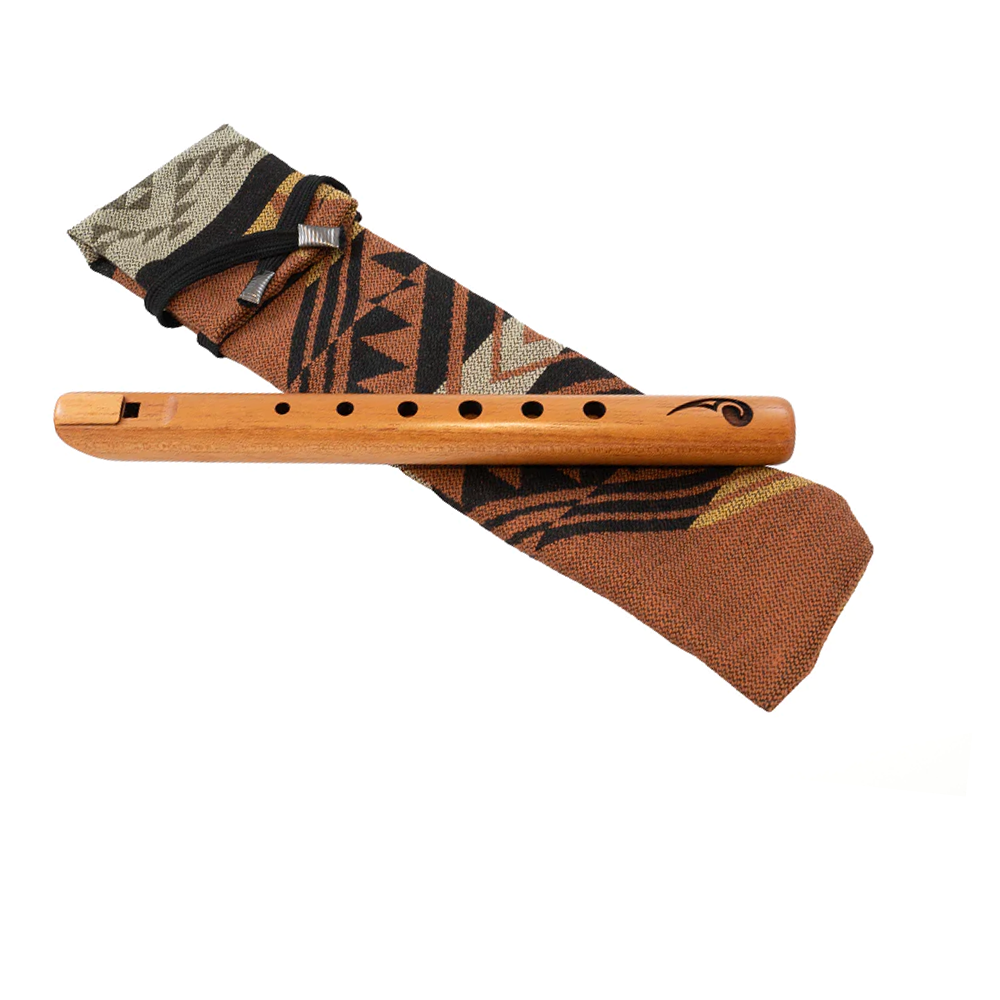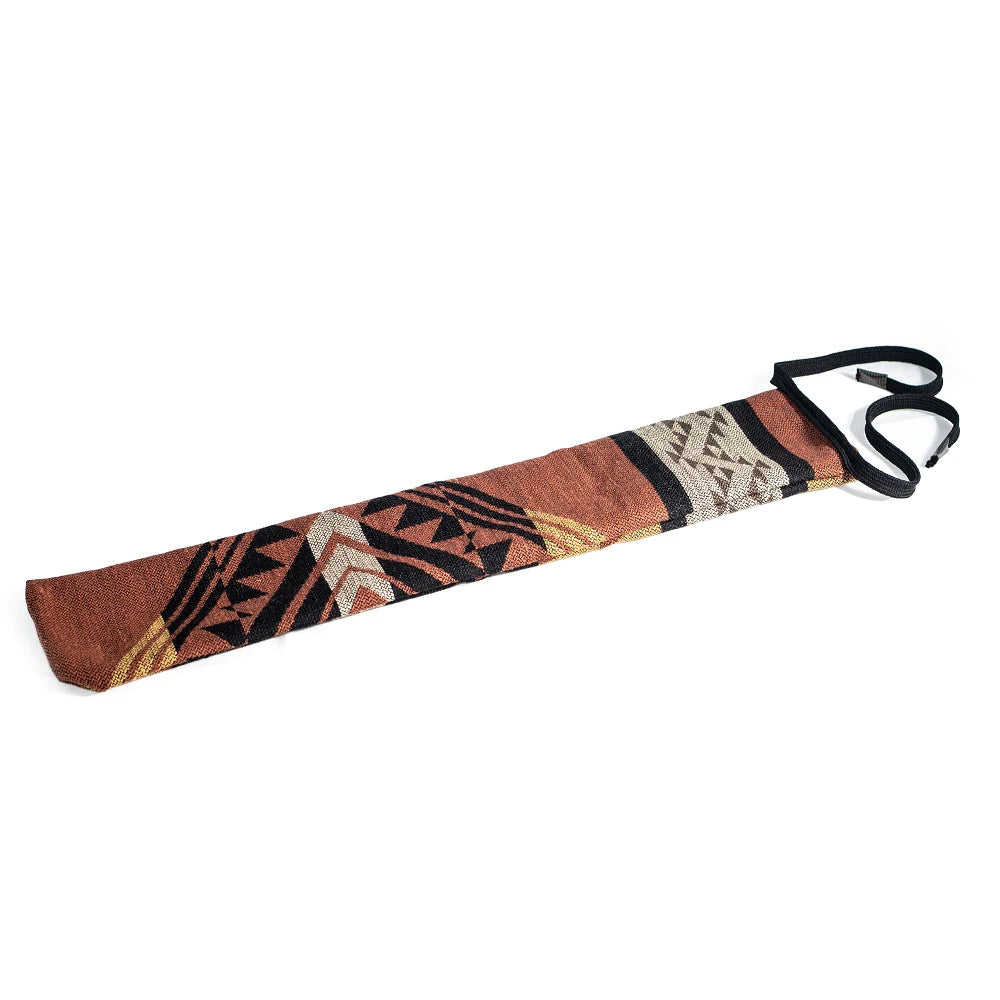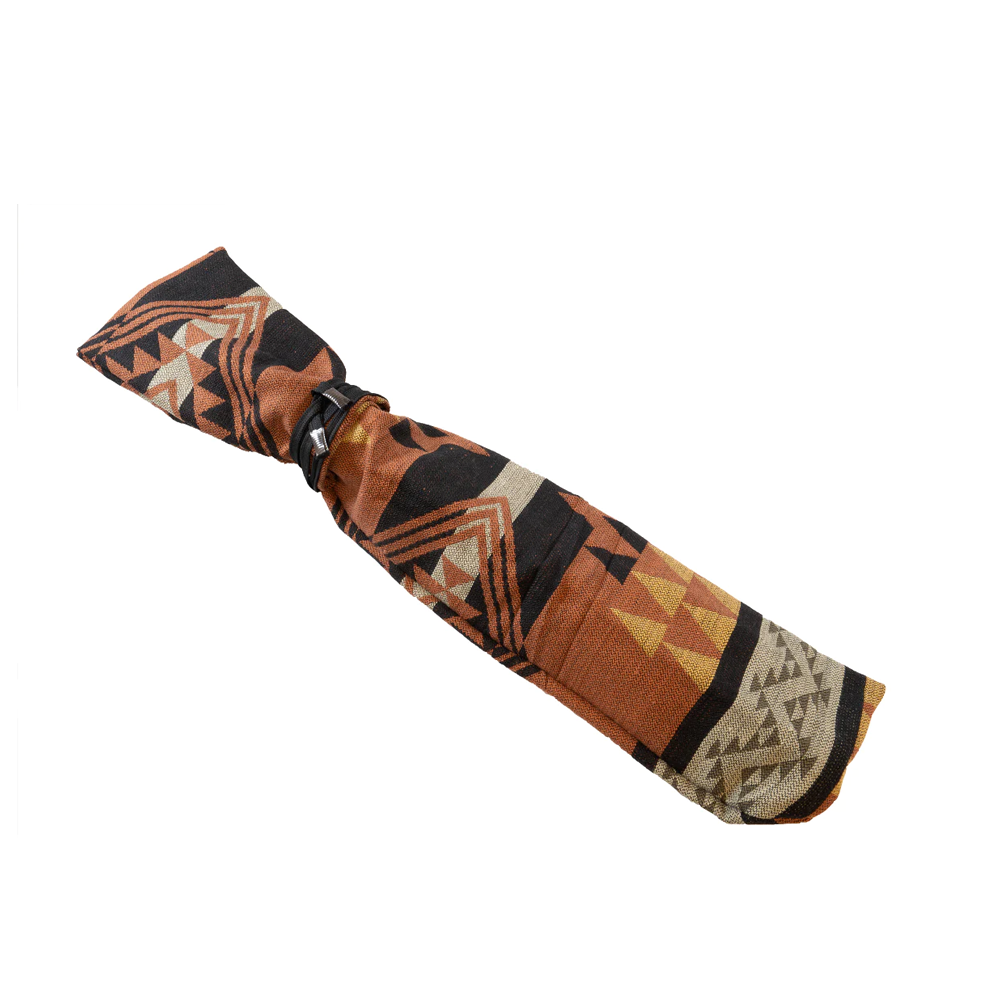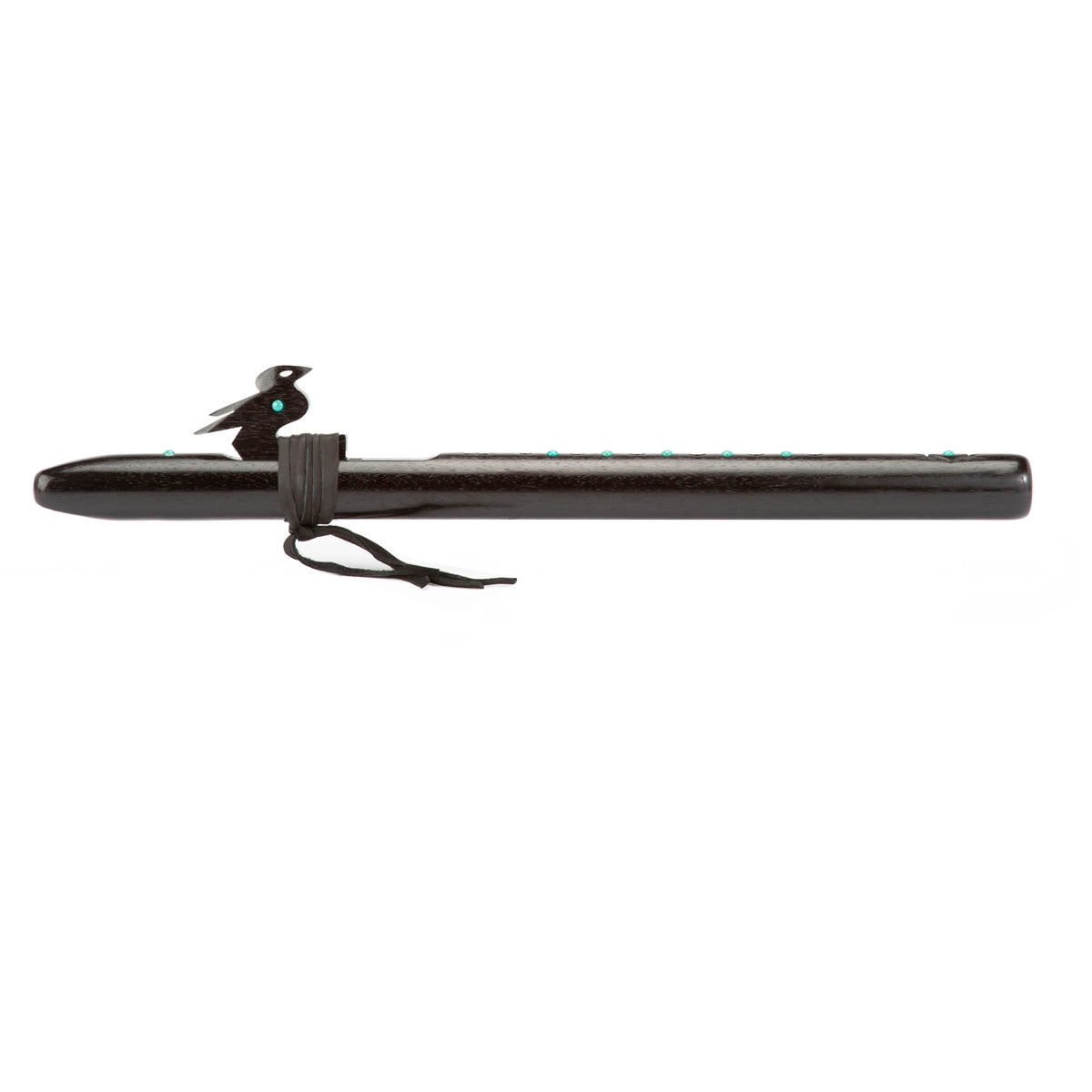
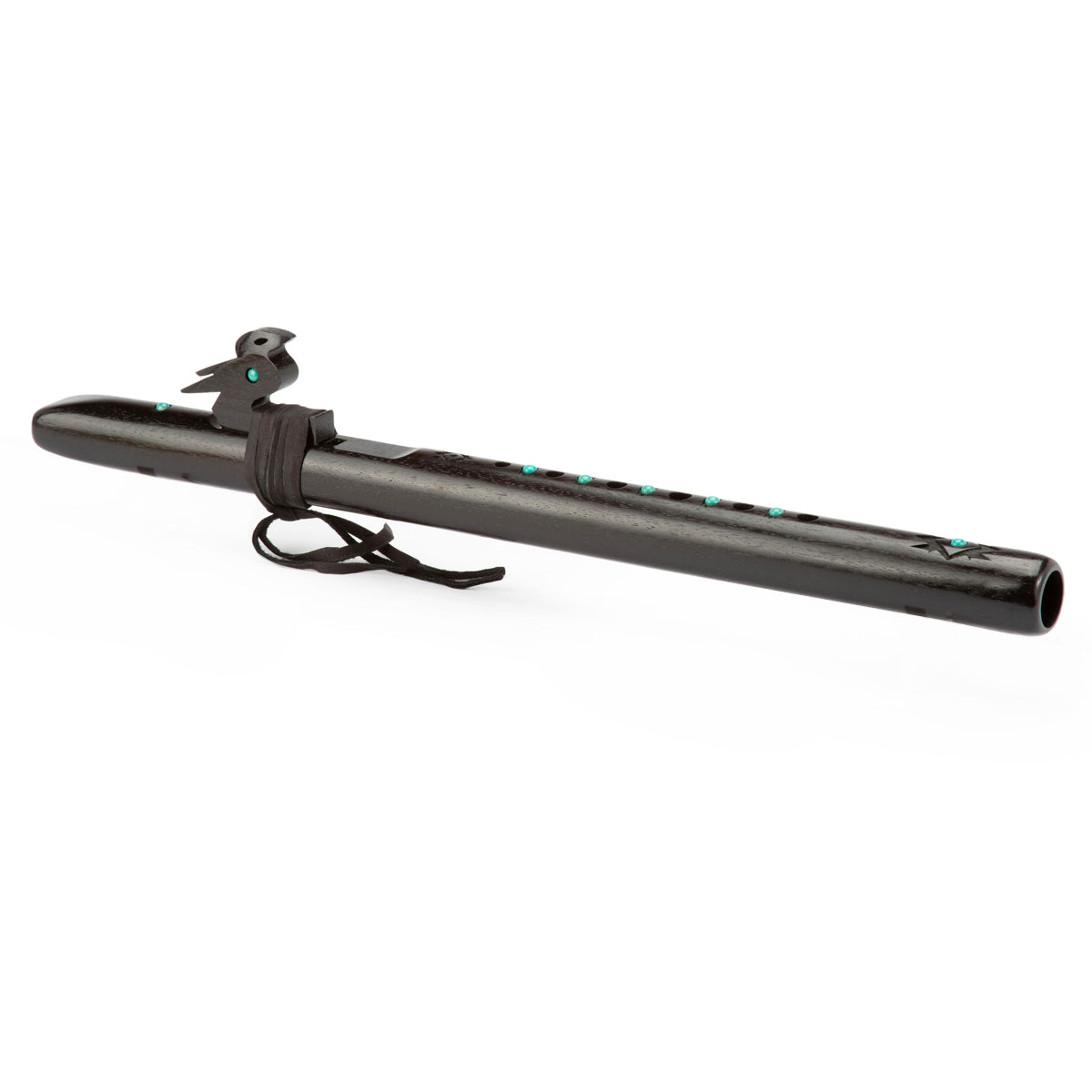
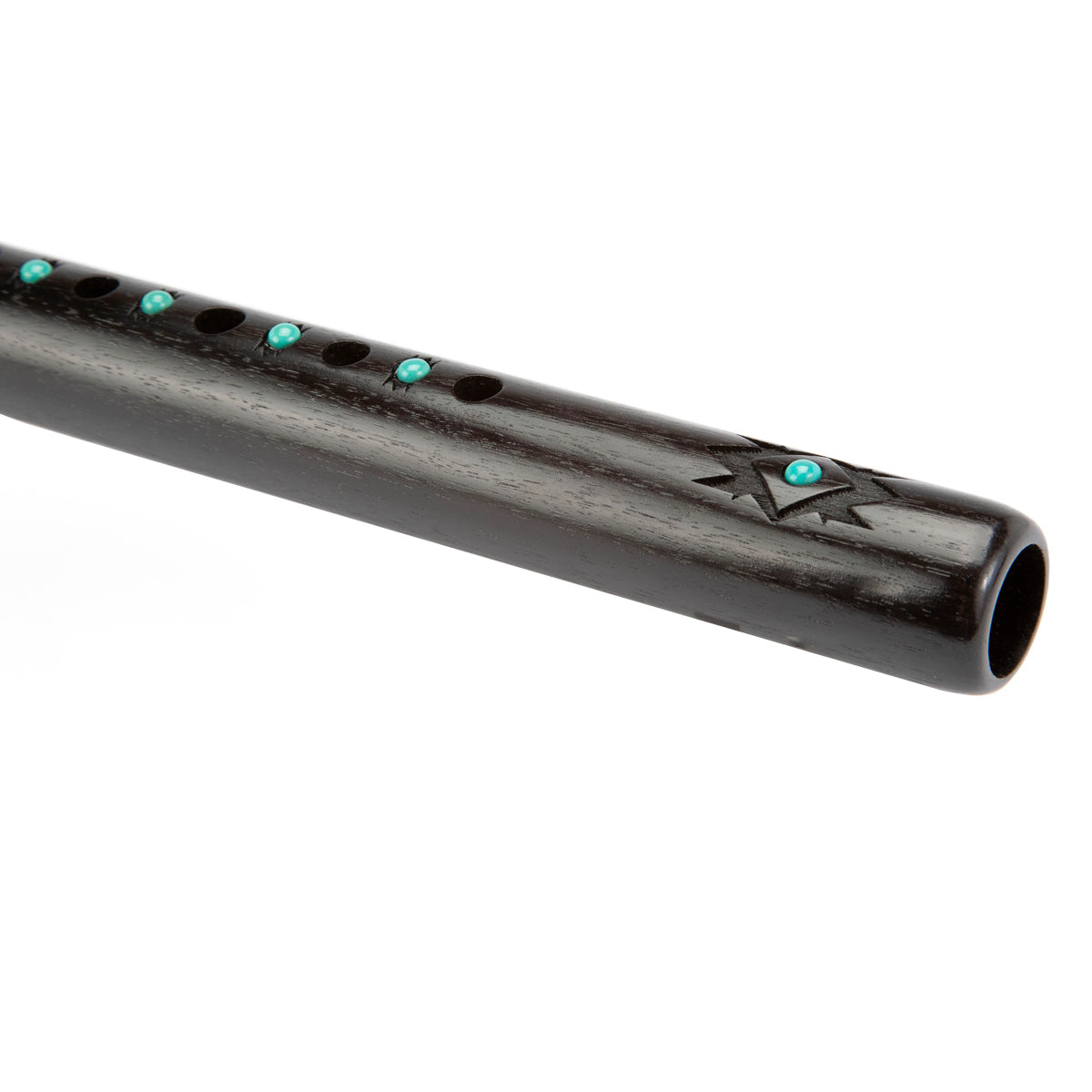
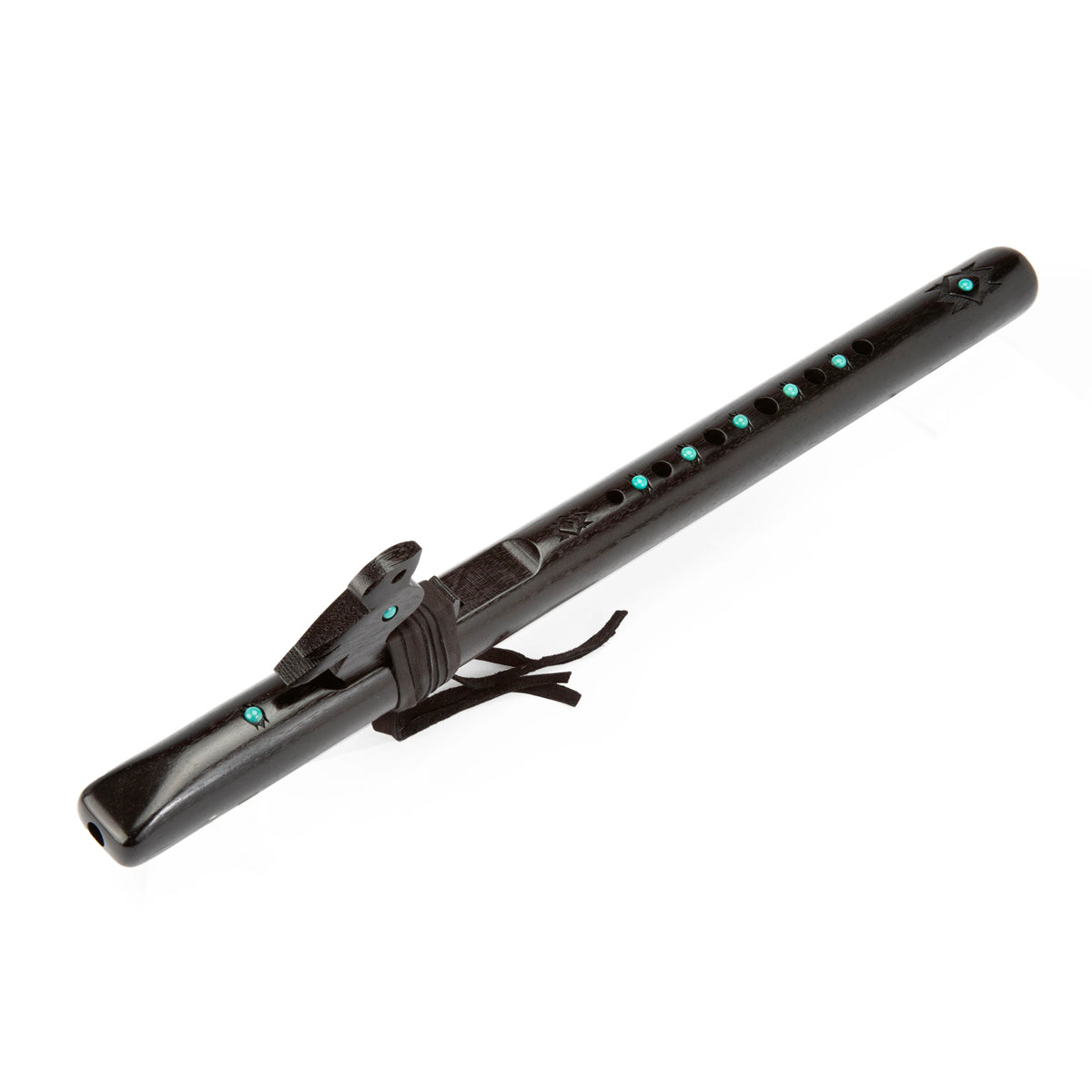
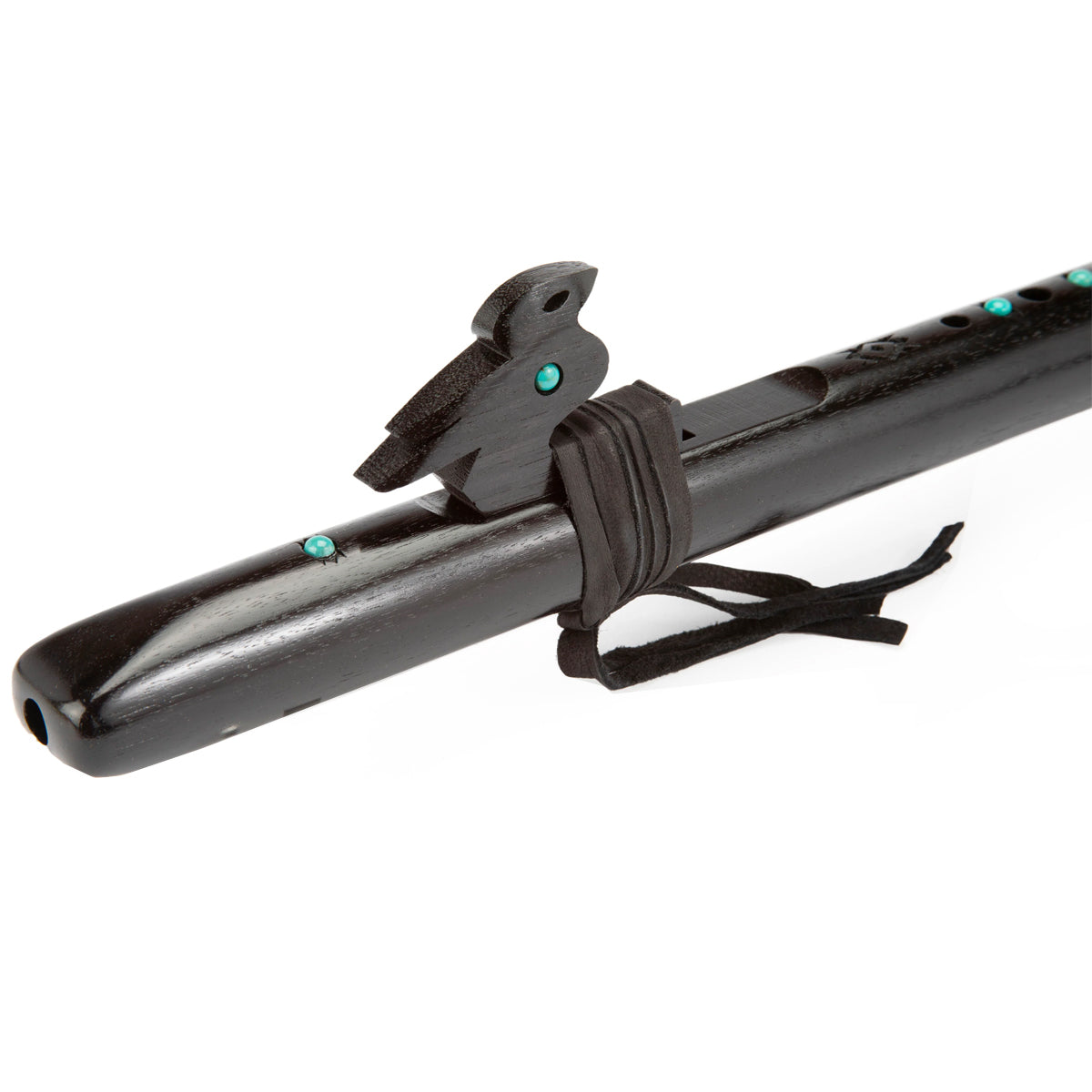

High Spirits Crow Flute - Ebonised Walnut with Turquoise Inlay - A
The High Spirits Crow Flute in the key of "A" minor is crafted from ebonised domestic walnut, a hardwood. It's inlaid with turquoise cabochons, which add to the natural beauty of the flute and enhance the functional art quality of the instrument. The flute is sealed with non-toxic oils which give it a clear, bright voice.
Ebonising is a process used in the early 1900s. Even though the ebony wood was already rare and costly, ebony furniture was popular at that time. To compensate for that, wood workers developed a dyeing process called ebonising. Unlike a stain, the dyeing process penetrates the wood fibre deeply. Walnut is ideal for this process because it has a dark brown grain that streaks through the black dye giving it a similar look to ebony. We have found that this process slightly enhances the sound quality of the wood.
This Crow Flute is a good accompaniment flute for the Contra Bass "A" flute and the Pocket Flute in the key of "A".
The flute is keyed in the key of "A" minor and can also be played in the relative major diatonic scale in the key of "C".
It is a 6-hole flute, we cover the 3rd hole from the top of the flute (known as the 6th hole) with a leather tie, giving the option to use it as a 6-hole or a 5-hole flute.
This flute is 19 inches (48 cm) long.
Choose options







NATIVE AMERICAN FLUTES
TUTORIAL BOOKLET
Each flute is eligible for our free “Beginner/ Intermediate How-To-Play” instruction, which includes an instructional booklet with fingering charts.
You can also get an online version and download it by clicking the link just below.
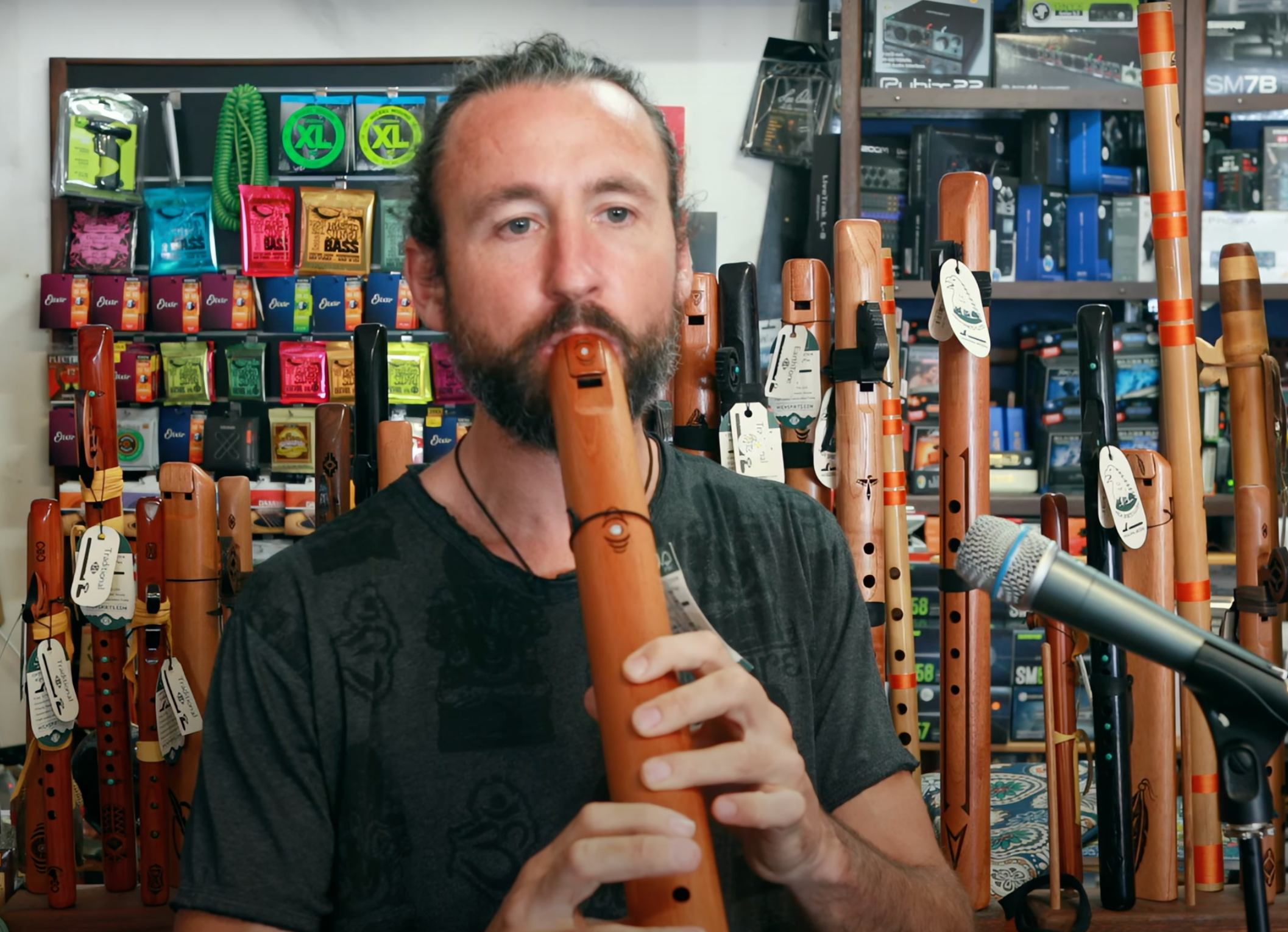
HIGH SPIRITS FLUTES
DEMONSTRATION AT SON OF DRUM
Welcome to Son of Drum, Mullumbimby. In this video we will share with you a selection of beautiful Native American flutes, and demonstrate some different keys available.
If you would like to know more about any specific flutes, swing by the shop or email us at info@sonofdrum.com.au and our team will be happy to help find the perfect instrument for your playing pleasure.
Need some help?
Frequently Asked Questions
HIGH SPIRITS FLUTES
The flutes need very little care. There is some information in the instruction booklet. It is best to keep them in a bag or cloth away from direct sunlight. A selection of bags can be purchased at Son of Drum, or you can make your own.
If you wish to re-oil your flute, use an oil that you do not mind putting your mouth on. You may also use combination bees wax/lemon oil mixes such as Williamsville Wax or Lemon Lavender Beeswax Polish. Apply and let soak in for an hour and the wipe off excess.
When tying the fetish down, place it so that it is a hair behind the rectangular sound hole and centered left to right on the sound hole. The rubber band will hold it down while you wrap the leather. Tie it securely. No matter how tightly you tie the fetish you will still be able to make adjustments afterward. The fetish should never cover any part of the sound hole.
Cedar is a very large family of woods, including red woods, junipers, and several dozen other names.
Aromatic cedar is also known as eastern red cedar and closet cedar. This wood is preferred because it is a fine balance between clarity and warmth. Because High spirits uses only plantation-grown woods, aromatic cedar has more knots and flaws which makes using this wood more labor intensive and therefore a bit more costly.
Spanish cedar is actually more in the mahogany family but because of its strong cedar-like fragrance it was given the cedar name. Its tonal quality is very close to aromatic cedar but because of its straight grain qualities it is much easier to work and we are able to offer the flutes at a better price.
If you have never played an instrument before, I highly recommend the Sparrow Hawk in the key of "A" or the Whitetail Hawk in the key of "B". They have a wonderful voice and are easy to play.
The key of "G" is a bit more versatile because it is more compatible when playing with other instruments.
The key of "F#" (25") is traditional, haunting and is the key the Native American community has adopted as their key of preference. It is not as suitable for playing with other instruments.
The longer a flute is, the more breath control is required to get a sweet sound. Most of us are tempted by the lower tones. It is important to remember that starting with a flute that is easy to play speeds up the process of learning and, if you get hooked, you will want other flutes anyway. Everything you learn on an easy flute will transfer to future flutes you play.
If you play a woodwind now, or have in the past, you will be able to play any of our flutes. All of our instruments come with an instructional DVD making it easy to learn the flute.
It is always fun to have our kids show an interest in making music! Our experience is that most children can play these flutes easily. The only limitation is that their fingers and hands are a bit small to be able to reach and cover the holes on the larger flutes.
The smallest flutes we offer are Pocket Flutes. The key of "A" is a 5-hole, 9" flute, and the key of "G" is a 6-hole, 11" flute. They are both made from aromatic cedar,walnut and Spanish cedar and have high, sweet voices.
Somewhat larger (15") is the 6-hole Kestrel in the key of "D", made from birch, a hardwood. It is a good size for ages 7 and up and is pitched lower than the Pocket Flutes.
If the child is tall for their age and has larger hands, we recommend the 6-hole Merlin (17.25") in the key of "C", made from domestic walnut. It is the next size up from the Kestrel and has a deeper voice.
By the time children reach the age of 9, their hands are large enough that we can recommend one of the following:
1) a 6-hole White Tail Hawk (17.25") in the key of "B" made from walnut;
2) a 5-hole Little Hawk(18") in the key of "A" made from Spanish cedar;
3) or a full-sized (19"), 6-hole Sparrow Hawk in the key of "A" made from aromatic cedar, Spanish cedar or walnut.
The Little Hawk and the Sparrow Hawk "A" flutes have the deepest voices of the all the flutes mentioned above.
We sell more cedar flutes because of the beauty of the wood, but when considering buying for children, birch, walnut and Spanish cedar are good choices because they are harder woods and therefore more durable.

